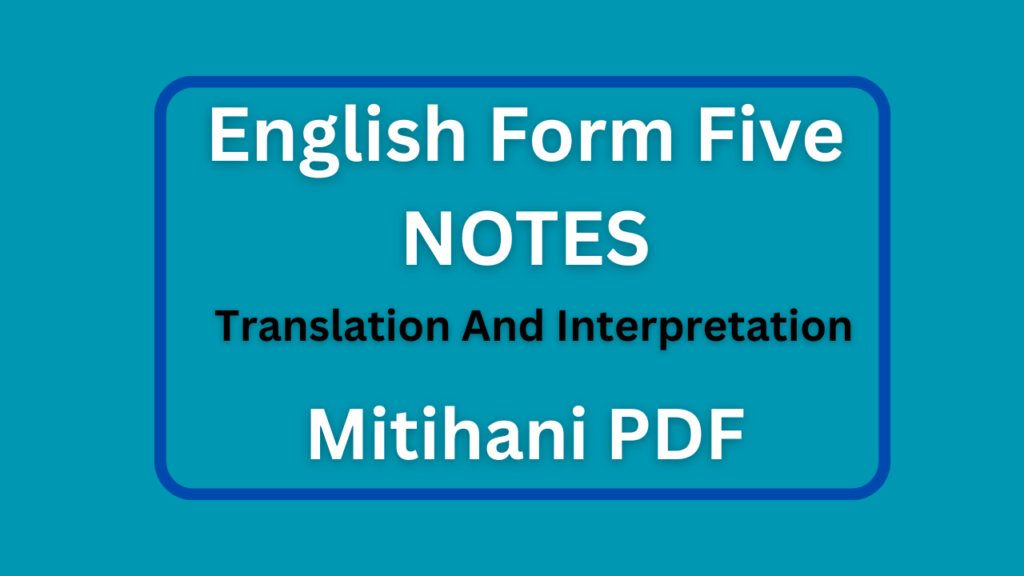Translation and interpretation are essential components of the Form Five English syllabus in Tanzania, aimed at enhancing students’ linguistic competence and cross-cultural communication skills. Translation refers to the process of converting written content from one language to another, ensuring that the meaning, tone, and style are preserved. Interpretation, on the other hand, involves conveying spoken messages from one language to another, often in real-time. In the Tanzanian context, students typically work with Kiswahili and English, focusing on accuracy, clarity, and cultural relevance in both forms of language conversion. These skills are crucial for academic success and professional communication in a multilingual society.
The syllabus emphasizes the importance of understanding both linguistic structure and cultural context when translating or interpreting texts. Students are trained to identify idiomatic expressions, proverbs, and figures of speech and render them appropriately in the target language. Exercises include translating short stories, speeches, and formal documents, as well as interpreting conversations and public announcements. Through these activities, learners develop critical thinking, attention to detail, and a deeper appreciation of language diversity. Ultimately, the translation and interpretation component prepares students for various careers in education, media, diplomacy, and public service, where bilingual communication is essential.
Form Five English Notes: Translation and Interpretation
To Download a Full Topic Click Link Bellow

